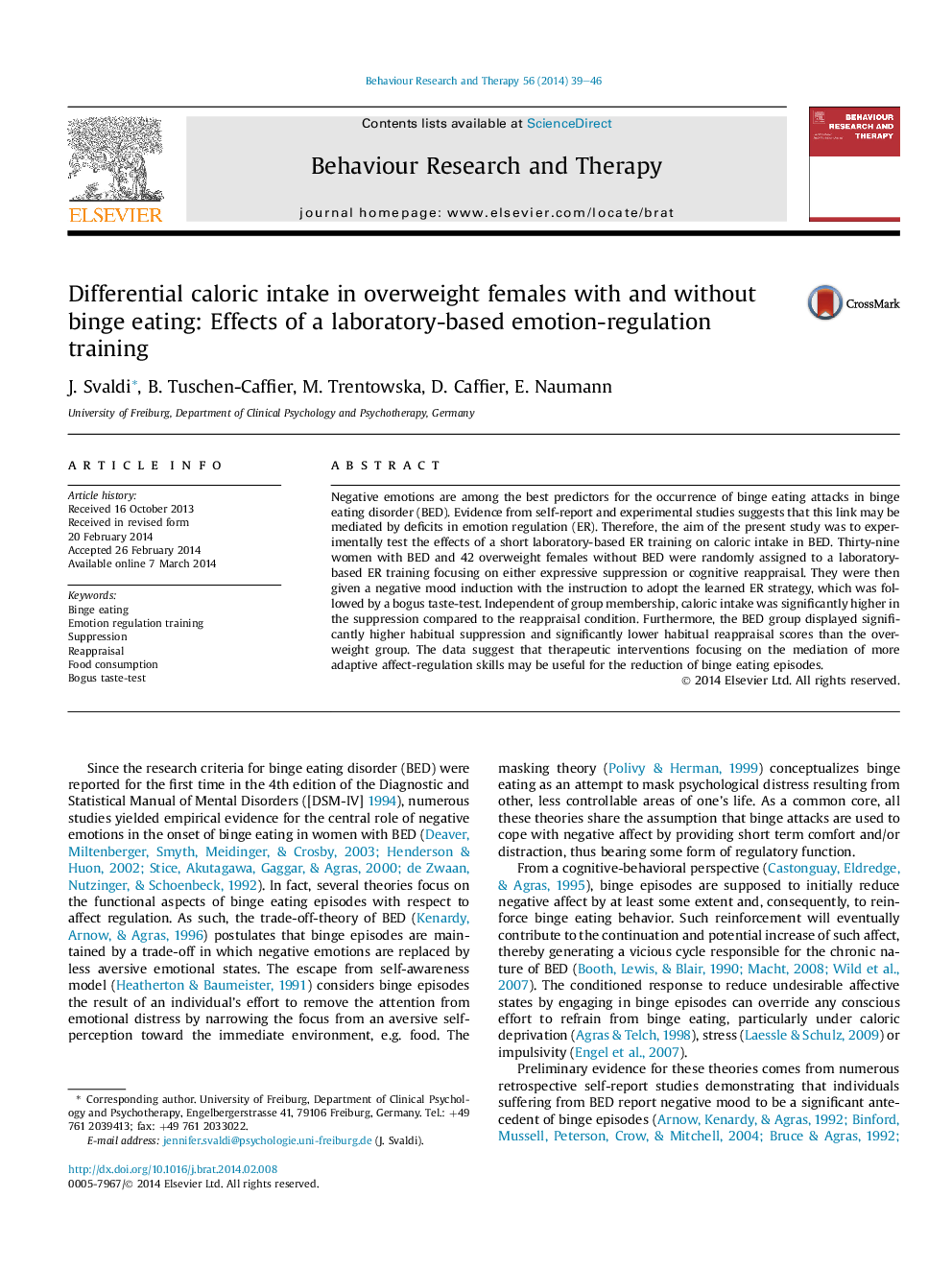| Article ID | Journal | Published Year | Pages | File Type |
|---|---|---|---|---|
| 7262709 | Behaviour Research and Therapy | 2014 | 8 Pages |
Abstract
Negative emotions are among the best predictors for the occurrence of binge eating attacks in binge eating disorder (BED). Evidence from self-report and experimental studies suggests that this link may be mediated by deficits in emotion regulation (ER). Therefore, the aim of the present study was to experimentally test the effects of a short laboratory-based ER training on caloric intake in BED. Thirty-nine women with BED and 42 overweight females without BED were randomly assigned to a laboratory-based ER training focusing on either expressive suppression or cognitive reappraisal. They were then given a negative mood induction with the instruction to adopt the learned ER strategy, which was followed by a bogus taste-test. Independent of group membership, caloric intake was significantly higher in the suppression compared to the reappraisal condition. Furthermore, the BED group displayed significantly higher habitual suppression and significantly lower habitual reappraisal scores than the overweight group. The data suggest that therapeutic interventions focusing on the mediation of more adaptive affect-regulation skills may be useful for the reduction of binge eating episodes.
Related Topics
Health Sciences
Medicine and Dentistry
Psychiatry and Mental Health
Authors
J. Svaldi, B. Tuschen-Caffier, M. Trentowska, D. Caffier, E. Naumann,
